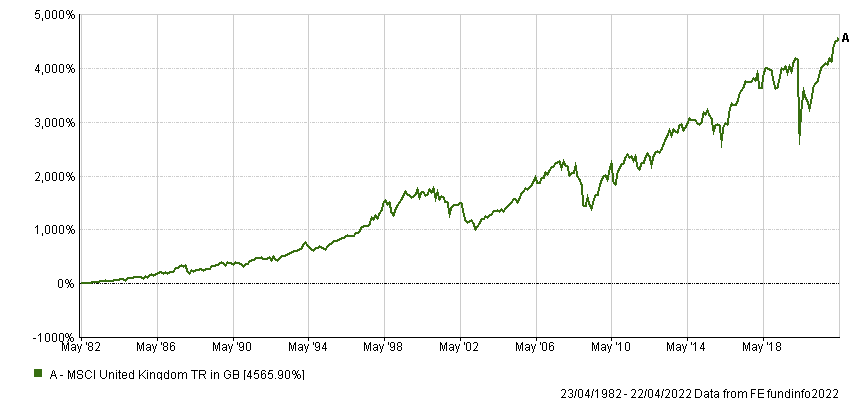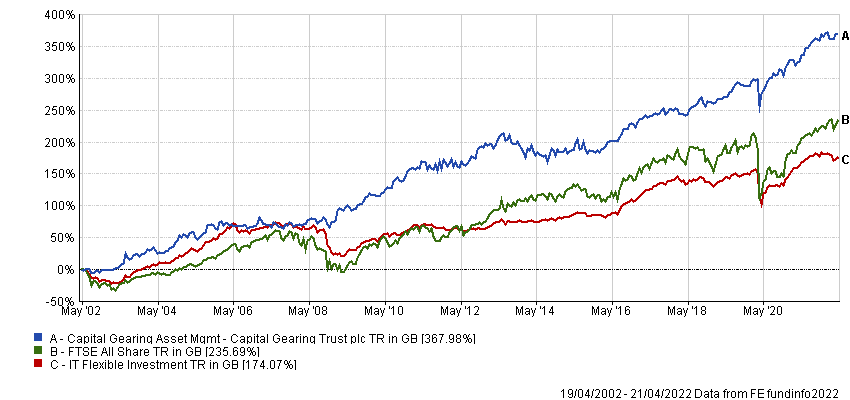Investors should prepare for “alarming crises” as central banks are forced to engage in “financial repression” to deal with the extraordinary levels of debt that have accumulated over the past 40 years, according to Peter Spiller, manager of the Capital Gearing Trust.
Spiller (pictured) took charge of the trust in 1982, when the world was exiting a high inflationary period much like the one we currently appear to be entering.
Back then, chair of the Federal Reserve Paul Volcker was credited with bringing the runaway inflation that characterised the 1970s back under control by aggressively raising interest rates.
Other deflationary forces that emerged in the early 1980s also played a significant role, but Spiller said many of these are declining in power, or even being rolled back.
“Disinflation was given a major boost when China’s change of policy and the liberation from communist rule of eastern Europe just about doubled the number of workers in the capitalist world,” the manager explained.
“Demographics helped too, with the growing working-age population in the West boosted by the increasing participation and improving opportunity for women. Technology, always at the heart of productivity gains, made a particular contribution in easing price discovery through the internet.”
The combination of these factors helped push bond yields down over the next 40 years, creating a powerful tailwind for the majority of investments.
Performance of index over 40yrs

Source: FE Analytics
Spiller added the deflationary impact of globalisation was so powerful over this time that central banks could send nominal bond yields into negative territory without causing excessive inflation.
Yet the manager pointed out that globalisation is now moving into reverse, fuelled by concerns over the direction in which Russia and China appear to be heading.
“The just-in-time worldwide model of manufacturing is fading,” Spiller continued. “Furthermore, there are no realistic candidates for any equivalent increases in the workforce of the capitalist economy from elsewhere.
“Manufacturing closer to home will be more secure, but also more expensive. The consequence will be wider than just goods; the bargaining power of labour, emasculated by globalisation, will be at least partially restored.”
Charles Goodhart, former chief adviser at the Bank of England, suggested the inflationary impact from deglobalisation will be reinforced by demographics: a shrinking working-age population, combined with more retirees – who consume but don’t produce – will put greater demands on the workforce.
Spiller said technological advances will also have less of an impact. For example, while he estimated that the internet has reduced the cost of clothing by 7% in real terms since inception, this downward trend is likely to slow.
“This will be a very different environment for fiscal and monetary policy makers,” he continued.
“The greatest imbalance that has developed over the past 40 years has been the extraordinary increase in debt that has been encouraged by abnormally low interest rates. This both constrains growth and makes economies much more fragile.”
Spiller said the only way to reduce the burden of excessive debt without risking a depression was to engage in “financial repression”: elevated inflation with moderate nominal rates.
“Even so, if this characterisation of the new era is correct, the potential for ‘Fed mistakes’ will move from overtightening in a deflationary environment to acting too late and too little, as characterised by the likes of [former chair of the Federal Reserve] Arthur Burns in the early seventies. Fiscal policy may be on the same learning curve,” he added.
“There may be some alarming crises on the way, not least in eurozone sovereign debt.”
Eventually, however, he said that with enough financial repression, debt could be brought into better balance with assets, income and GDP, allowing central banks to mount an aggressive attack on inflation, just as Volcker did in the 1980s.
With luck, Spiller said that would produce an environment similar to the one of 1982.
“That is to say inflation and interest rates high but falling, [price-to-earnings] P/E ratios low and debt no longer alarming. That would be a great opportunity to replicate the returns for the next 40 years,”
However, others take a different view on inflation. Calum Holt, an investment analyst at Baillie Gifford, said technological advances and economies of scale in renewable energy will act as a deflationary force over the long term. For example, he pointed out most new renewable energy projects were already cheaper than fossil fuels by 2020, and the cost of solar electricity has fallen by 90% since 2009.
Holt said this trend will make “all goods more accessible to consumers by reducing the costs embedded in their manufacturing, distribution, use, and disposal, in a way not dissimilar to that brought about by the emergence of computing since the 1980s, though on a much greater scale”.
“The falling cost of energy, and by extension the cost of doing everything, will affect literally every government, business, household and individual,” he added.
“Only time will reveal the full extent of the impact of the energy transition – though it is sure to be profound.”
Data from FE Analytics shows the Capital Gearing Trust has made 368% over the past 20 years, compared with gains of 235.7% from the FTSE All Share and 174.1% from the IA Flexible Investment sector.
Performance of trust vs sector and index over 20yrs

Source: FE Analytics
The trust is on a premium of 2.3% and has ongoing charges of 0.58%.






